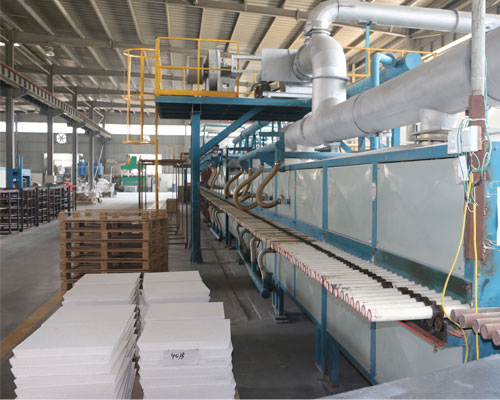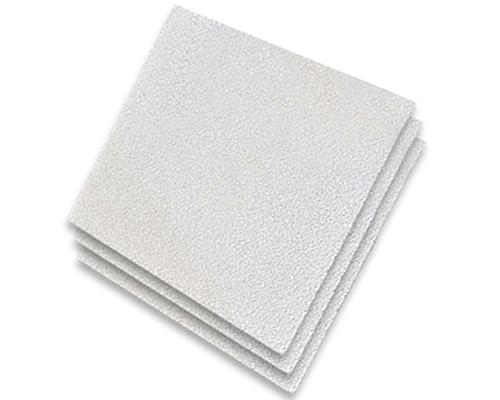At present, the filtration technology using ceramic foam filters has been recognized as a successful method to reduce the inclusions in the molten metal during the casting of metal parts.
From key components in the aircraft and automotive industries to household applications, 90% of manufactured products and equipment contain metal cast parts. However, the molten metal actually used to produce metal castings usually contains impurities and inclusions that are harmful to the final cast metal product.
In order to improve the efficiency of filtering molten metal, especially the ceramic foam filter of aluminum-based alloy, AdTech provides an alumina ceramic foam filter.
The ceramic foam filter is produced by impregnating polyurethane foam with a ceramic slurry, drying, baking, and finally firing the foam in an oven. It has excellent thermal shock resistance, sufficient compressive strength, acceptable density, and permeability.

AdTech specially designed Ceramic Foam Filters are made of the basic raw material Aluminium Oxide. They are manufactured with porosities varying from 10 to 60 pores per inch (PPI). Also, combo sets are made in 20-30 PPI and other selections are possible. Different sizes and custom-made filters are manufactured according to specifications.
Since ceramic foam filters filtration technology have been used in the aluminum industry, they have now become the most widely used and preferred filter material in the world’s aluminum industry. The existing filter size and porosity range can meet the casting requirements of all aluminum alloys. Their use and management are simple and effective, with low cost, and are an effective method for removing non-metallic inclusions from molten aluminum.
When molten aluminum passes through these labyrinth-like tortuous paths, inclusions are adsorbed in the pores of the filter. However, it is important that the metal flow rate should be in the optimal range and the total effective filtration area can be fully utilized. If the material of the filter is uneven and there are broken holes, the flow rate of the metal through the filter will increase, which will make the inclusions unable to be completely captured, or the trapped impurities will be washed away.

